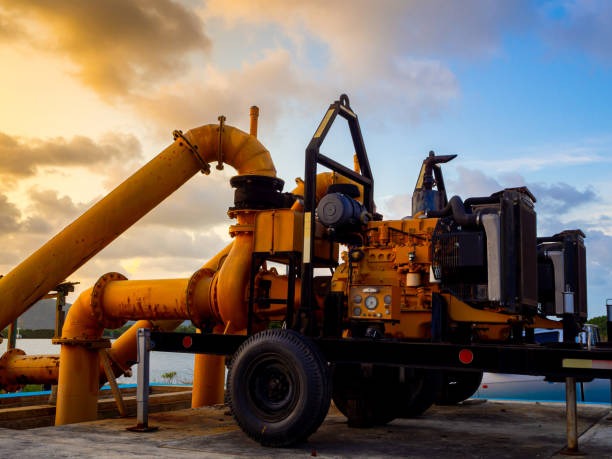Efficiency and productivity are first priorities for owners and operators of heavy machinery. Maintaining this efficiency mostly depends on how quickly and consistently they can replenish their machinery. Transfer pump diesel systems then become extremely important for optimising operations and reducing downtime.
What are Diesel Transfer Pumps?
Specifically made tools meant to transfer diesel fuel from storage tanks to heavy equipment’s fuel tanks are diesel transfer pumps. These pumps provide a regulated, effective, and safe method of gasoline transfer, unlike just emptying one container into another. Each fit for distinct uses and fuel transfer volume; they range in kind from electric, hand-operated, and air-powered.
Benefits of Owning a Diesel Transfer Pump
For those who run heavy machinery, owning a diesel transfer pump has many benefits. By rapidly moving vast amounts of fuel, transfer pumps help to shorten the refuelling time. For operators as well as for equipment, this translates into more effective hours. Heavy equipment owners can cut down the need to move machines to gasoline stations or wait for fuel supplies by including on-site refuelling facilities. This helps projects to stay on schedule and reduces downtime. Comparatively to refuelling at retail stations, buying fuel in bulk and employing a transfer pump to replenish equipment can result in major savings. Safety elements like automatic shut-off nozzles—which stop overfilling and spills—are included into transfer pumps. This lowers environmental dangers and accident risk. Transfer pumps enable owners monitor fuel usage, spot inefficiencies, and maximise fuel management techniques by precisely gauging the quantity of fuel consumed. Wide range of heavy equipment, including excavators, bulldozers, generators, and vehicles, can be refilled using diesel transfer pumps, so providing a great benefit across many sectors.
Applications Across Industries
Industries most dependent on diesel-powered equipment find great application for diesel transfer pumps. Transfer pumps guarantee fast and effective refuelling of equipment on building sites, where heavy machinery is continuously in use, therefore reducing project delays. Diesel transfer pumps let farmers maximise their working hours by refuelling tractors, combines, and other agricultural machinery in the field—especially during important planting and harvesting seasons. Large amounts of fuel are needed to run heavy machinery in the tough environment of mining activities, hence these pumps are crucial for preserving production and ensuring smooth running of operations there. Diesel transfer pumps are used at depots by trucking and logistics firms to replenish fleets of vehicles, therefore guaranteeing effective turnaround times and reducing disturbance of delivery plans.
Choosing the Right Diesel Transfer Pump
Maximising the advantages of a diesel transfer pump requires careful selection of one. Factors to consider include the flow rate, or the volume of fuel that needs to be transferred per minute; the power source, such as electric, hand-operated, or air-powered, depending on the availability of power and the specific application; the pump type, such as rotary vane, gear, or diaphragm, each with its own characteristics and suitability for different fluids and conditions; the portability, or whether the pump needs to be stationary or portable for on-site refuelling; safety features, such as automatic shut-off nozzles, filters, and other safety mechanisms; and finally, the budget, including the initial cost of the pump and the long-term operating and maintenance expenses.
In essence
Any owner of heavy equipment should make a major investment in a dependable transfer pump diesel system. Along with simplifying refuelling, it increases general operational efficiency, lowers costs, and raises safety standards. Making the correct decision can help companies to guarantee that their heavy machinery is always ready to operate, so boosting their profitability and output.

